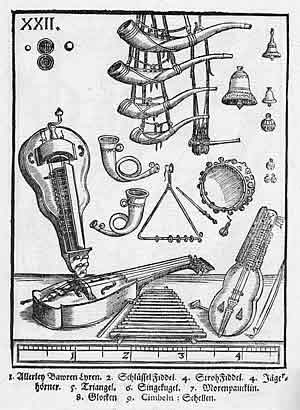
How do you know what old music sounds like if you don't have easy access to scores, don't know how the notation worked, if any? If there are no surviving players of the music?
These questions came up as I listened again to the hauntingly intense Poetic Edda played by Sequentia, who also do extraordinary renditions of Hildegard von Bingen's music.
Well as an OOO-ist there is a ready answer. The instruments themselves tell you how to play them. Any musician knows this. A guitar “wants” to be held a certain way. A wind instrument wants to be blown a certain way. Different instruments coax you into handling them in different ways.
The imperative, as Alphonso Lingis argues, comes from the side of the object, with surprisingly little interference or projection from the human side.
This imperative even affects your own playing. As Miles Davis said “You have to play a long time to sound like yourself.” The instrument of yourself also asks to be handled in certain ways that take time to discover.
So I'm guessing that these very skilled Sequentia musicians just held the Scandinavian instruments and riffed on them, until they found how they wanted to be played. The music was in them.
1 comment:
Of course, the instrument itself does present certain possibilities of producing sound...but it does not necessarily 'show you' the manner which the instrument-maker 'intended' the instrument to be played nor the way the instrument is traditionally played.
There are many of examples of this...
-John Cage's interactions with Gamelan
-violin technique in Indian Classical vs. Western
-contemporary circuit-bending
This is not meant as an attack, just a note from a (fellow?) musician.
Post a Comment